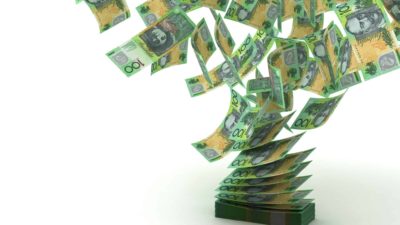The share market is treating the coronavirus like a black swan event, which is causing all sorts of issues with share prices. Yet in this century, we have already seen the SARS virus and bird flu.
In 33 years of investing on the ASX, I have seen many ups and downs, global crises, recessions "we had to have", bursting bubbles and crashes that were totally disconnected from reality – like in October 1987.
One of the things I have learned is that this doesn't need to have a permanent negative impact on your portfolio. In fact my own share portfolio has benefitted over the medium term from each downward cycle on the ASX.
Recession-proof investing
Building resilience into any portfolio is based on two concepts. First, always choose good companies that are selling at a reasonable price, this is at the core of value investing. Second, focus on a diverse range of industries with a proven resilience in times of uncertainty.
Resilient sectors
In October 2007, the BHP Group Ltd (ASX: BHP) share price peaked at $45.50. By the following November, it had crashed down to $20.40 per share. But within 3 years, the BHP share price had risen back to $44.62.
It has been my experience that iron ore is very resilient to a market downturn and will remain so while the middle classes of China and India continue to expand. My pick for a well managed iron ore miner selling at a reasonable price is Fortescue Metals Group Limited (ASX: FMG).
When uncertainty grows investors turn to a range of haven investments. Chief among these is gold, as was evident in the recent flare up of tensions between the US and Iran.
Personally, I prefer gold mining companies to owning physical gold for a range of reasons. Principal among them is the payment of dividends and the prospect for share price growth way beyond any increase in the gold price. My pick of gold companies selling at a reasonable price and with good future production prospects is Regis Resources Limited (ASX: RRL).
A third sector that is very resilient to any market downturn is the defence sector, in particular the US defence sector. Austal Limited (ASX: ASB) is undoubtedly the leading ASX defence sector company in my view. A well managed company, very large order book in front of it and a proven strong relationship with its US clients.
The last sector that quickly recovers from a downturn is essential services; utilities, commuter rail and those involved with maintaining or managing roads. I find this sector to be very overpriced generally. However, Service Stream Limited (ASX: SSM) is a well managed services company selling at a good price focusing squarely on the utilities sector.
But will there be a crash?
Black swan events like the coronavirus outbreak can occur at any moment and can run and run or be over quickly. That's why I have found it wise to have a good portion of my personal portfolio in the sectors discussed above.
The larger question of a downturn in the economy is a little more complex. One indicator I track is the cyclically adjusted price-to-earnings ratio, which is a concept by Yale Professor Robert Shiller that pointed out that a high ratio between share price valuation and earnings of S&P 500 Index (INDEXSP: INX) has preceded every major crash except for 1987.
In 1929 it reached 27.08, in 2000 it reached 43.7 and in 2007 it reached 27.2. Today it stands at 31.5. While we never know what's around the corner, personally, I do not think we are going to experience anything more than some corrections over the next 5 years.
Foolish takeaway
Investing for the medium- to long-term means you are bound to see bear markets as well as bull markets. While I do not believe we are headed for a major market crash it always pays to ensure you have a portion of your portfolio in sectors with a high level of resilience to market downturns.







